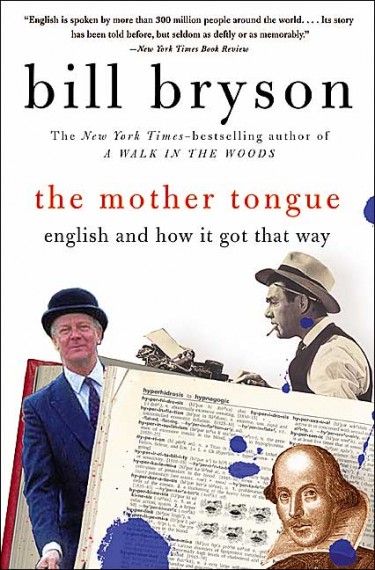 Although English is the third most spoken language after Mandarin and Spanish, it is the most spoken second language in the world. This is due to the power-brokers that speak it, its uniquely expressive vocabulary, and how it came to be, argues Bill Bryson in The Mother Tongue.
Although English is the third most spoken language after Mandarin and Spanish, it is the most spoken second language in the world. This is due to the power-brokers that speak it, its uniquely expressive vocabulary, and how it came to be, argues Bill Bryson in The Mother Tongue.
For being more like Bryson’s interesting read on domestic life and less like his masterpiece on science, I award it three stars out of five. These were my favorite passages:
- What most immediately sets English apart from other languages is the richness of its vocabulary. Altogether, about 200,000 English words are in common use, more than in German (184,000) and far more than in French (a mere 100,000). This richness and wealth of available synonyms means English speakers can often draw shades of distinction unavailable to non-English speakers. Continue reading…

credit wikimedia commons
I really enjoy writing these because the subjects have nothing to do with my day job, which keeps me on my toes. Hope you have as much fun reading them as I did writing them:

credit: blake snow
I adore the idea of “never giving up” in all its varieties. This is how I personally approach it. Here’s how Randy Pausch eloquently taught it.
“Brick walls are there for a reason,” he says. “There are not there to keep us out. The brick walls are there to give us a chance to show how badly we want something. Because the brick walls are there to stop the people who don’t want it badly enough. They’re there to stop the other people.”
Not you, reader. You want it badly.
This woman’s reply to what it’s like to never get married and live alone for 56 years breaks my heart:
Life was great and fun and exciting until I hit 40. I looked back on my life and realized the wonderful experiences I had, but something nagged at me.
By 50, I understood that life may have been richer if I had shared those experiences with someone. By 53, it became alarmingly clear to me, that I had no one to tell my stories to. And more importantly, I had no one to tell me their stories.
I had some health scares. I had to hire people to help me as I had no one in my life to help me. That was a huge wake up call. Going into middle to old age with no one by my side.
Sure, it is great to spend time alone and be at ease in your own skin. But after 56 years, I realize humans are “herd” animals. We want to share. We want to feel love. We want to feel like we are a part of something greater than our own thoughts.
For me, I have a very lonely life. I personally would not recommend it. Loneliness is unbearably painful at times.
If I had to do it again, I would not have chosen this lifestyle.
This is precisely why everyone should be extra kind to the lonely.

Les Films du Losange
Four disturbing but important stars out of five. My wife and I enjoyed, pondered, and discussed it very much.
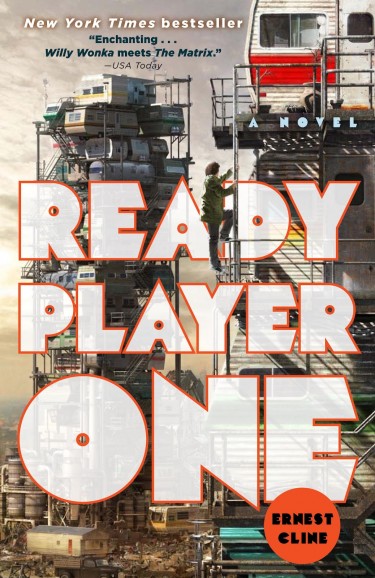
What might happen if humans lived an entirely simulated life, doing everything online except for eating and sleeping?
Earnest Cline has a dystopian, geeky, and fist-pumping answer in Ready Player One, his best-selling novel which I read over the holidays.
The story takes place in 2044 and follows a teenage prodigy named Wade as he seeks hidden fame, power, and fortune bequeathed by the world’s richest man. “But when Wade stumbles upon the first clue,” reads the synopsis, “he is beset by rivals that will kill for the prize, forcing him to confront the real world he’s always been so desperate to escape.”
Clever, huh? USA Today accurately described it as “Willy Wonka meets The Matrix.” I’d add a little Brave New World, ’80s game geek culture, Tron, and “The Wreck-It-Ralph of books” for good measure—all good things.
For fellow nerds who appreciate those things, I award the book a tilted four and a half out of five stars. For everyone else, particularly those who share my desire to curb compulsion disorders, I give it four stars.
These were my favorite passages: Continue reading…

credit: lindsey snow
I get quite reflective and often sappy during the final weeks of the year. After reviewing the past 12 months, this is what I learned: Continue reading…

Credit: Derek Buck
Reporting for Paste Magazine…

photo: lindsey snow
My wife and I recently returned from the most adventurous vacation we’ve ever taken. I have a lot more to say on the subject, but I’ll start with the most important: food. A picture’s worth a thousand words, right? Continue reading…

wikimedia commons
I recently finished Shackleton’s Incredible Voyage by Alfred Lansing, which tells the unlikely true story of the titular captain saving all of his crew after his ship was crushed by Antarctic ice floes in 1914.
All told, the 28 men survived 18 months on sea, ice, and one inhospitable island, while enduring unthinkable cold, the worst weather ever, and the first terrestrial crossing of South Georgia. Even more amazingly, they largely did it with jovial spirits, which helped them persevere and ultimately conquer death.
As I said before, Lansing’s writing is so intensely riveting, I was literally gulping and gasping for air at times. If it weren’t for a somewhat halted plot in the second quarter, I would award the book five out of five stars. These are my favorite passages: Continue reading…
 I only read six books this year. Eight if you count the 50 page summaries I read of How To Influence People and Millionaire Next Door, two popular business books.
I only read six books this year. Eight if you count the 50 page summaries I read of How To Influence People and Millionaire Next Door, two popular business books.
Regardless, the total was less than half of what I normally devour in a year — a little over one a month. No matter. I’d like to think I’m doing this instead.
Still, I’d like to read more next year. So before starting The Space Merchants, The Power Broker, and a dozen more samples I have downloaded to my Kindle, these are the books I enjoyed most in 2015: Continue reading…

credit: dungeons and dragons
Growing old is a weird as you imagined it. Not that any young readers ever think about getting old. As a tenderfoot, I certainly didn’t. Yolo!
In any case, onset aging baffles me. The body can’t move like it used to. The brain increasingly forgets things. And it’s perplexing to watch younger generations do things in ways you and your contemporaries can’t relate.
Take Let’s Play videos, for instance—one of the most popular and fastest growing types of television. Also called playthroughs, they work like this: Continue reading…

photo: blake snow
Got the pictured from Clever Doormats last week and absolutely adore it. Like it so much, my wife and I are upgrading it to the front door welcome mat after the holidays. Clever.

Tags: published works, feature stories, tech writing, branded journalism, travel columns
Since 2005, I’ve written hundreds of feature stories and special reports and thousands of news articles for half of the top 20 U.S. media and a lot more in the top 100. In that time, I’ve also published tens of thousands of paid blog posts for fancy tech publications.
Like my favorite personal posts, picking my favorite published works is difficult. But here are some that come to mind.
Fox News
CNN
Bloomberg
USA Today
NBC News
Wired Magazine
If you’re a business interested in hiring me for strategic content advice, editorial management, and ongoing story production like I’ve done for Dell, Google, Cisco, and others (samples here), please email.
[youtube]https://www.youtube.com/watch?v=HbWrJWWn9nU[/youtube]
I’ve been an avid listener of classical music for twenty years. I’ve listened to greatest hits, lesser-known recommendations, countless composers, all three periods, one-hit wonders, atonal crap, catchy melodies, and everything in between.
While I wouldn’t call my exposure exhaustive, I will say it has been thorough. And while other composers achieved greatness in their own way, none of them come close to the prolific genius of Bach, Mozart, and Beethoven. It’s not even close.
This is one of those pieces that separates the cliche-but-deserving trifecta from their contemporaries. I absolutely adore it, because it sounds like two people discussing a serious issue without ever fully arguing it.

Lucasfilm
Take these. If you’re interested in journalism, the art of war, Star Wars, business, and/or are “white,” I think you’ll enjoy them:
- Access denied. In light of waning press access because celebrities, politicians, newsmakers, and producers now take their scoops and audiences directly to social media (instead of publications), we must “build a new independent media on a bedrock of explaining and celebration and condemnation,” writes John Herrman. Explainers, for instance, “assert authority without invoking expertise; they mimic the language of their audience; they offer closure and satisfaction in an endless stream.”
- Why it’s hard to win the war on terrorism. “War is so much easier when both sides are wearing uniforms,” writes Richard White.
- The first-world problem of being white. “What my son was expressing — that he wants the comfort of what he has but that he is uncomfortable with how he came to have it — is one conundrum of whiteness,” writes Eula Biss.
- Sneaky ways businesses trick consumers. Why that restaurant you used to love is no longer good among other things by Daniele Kline (i.e. cheaper ingredients slowly make their way into popular products).
- Star Wars strikes back. By Brian Hiatt. “The phrase that I used in front of, like, 5,000 Star Wars fans pumped to the gills, ready to see the trailer, was ‘It’s only a movie,'” Hamil says. “I was trying to appeal to the rational, sane people who know movies don’t really change your life, and if you really think we can make you feel like you’re 10 years old at 38, you know what’s gonna happen. So just don’t think that and you’ll be fine!”
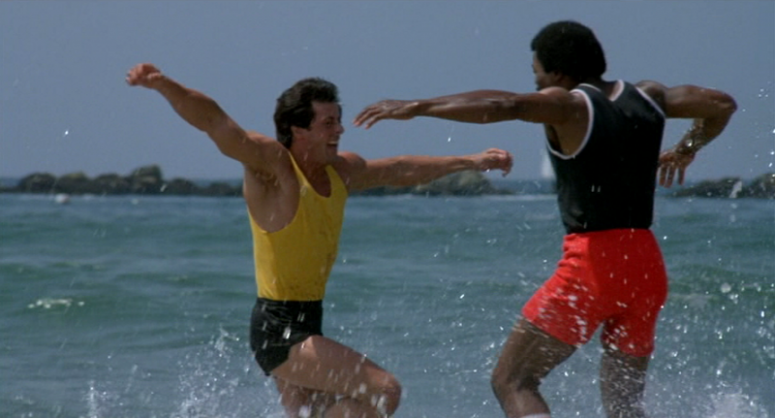
MGM
Here’s where my travel column went last month:
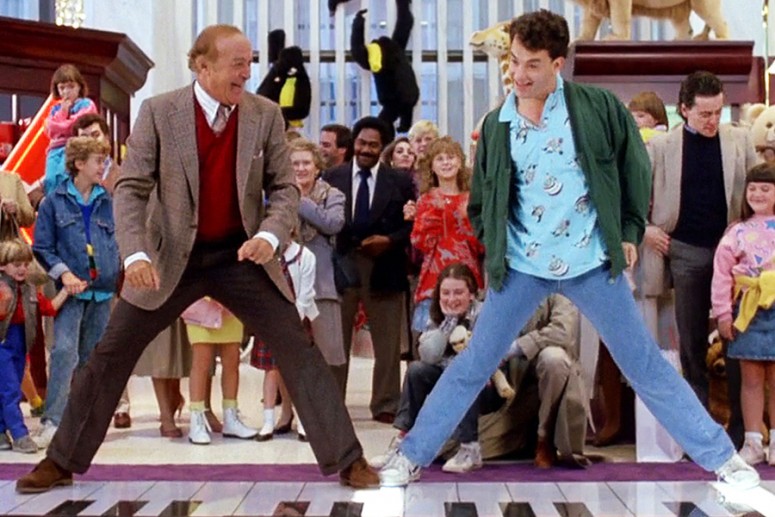
Twentieth Century Fox
When I was nine years old, I saw Big starring Tom Hanks. It’s a movie about a boy doing young-at-heart things in a grown-up’s body. That and being employed to have an opinion on (i.e. review) toys.
At the time, I thought it was the coolest movie ever made. I still think it’s pretty darn cool.
In reality, my work as a writer over the last decade is not unlike protagonist Josh Baskin’s. I get paid to have an opinion and ask a bunch of questions. I tinker with ideas, learn from those who are smarter than me, and slay the dragon of misinformation with research as my shield and a keyboard as my sword. Continue reading…

Eric Scott
A pottery teacher split her class into two halves.
To the first half she said, “You will spend the semester studying pottery, planning, designing, and creating your perfect pot. At the end of the semester, there will be a competition to see whose pot is the best”.
To the other half she said, “You will spend your semester making lots of pots. Your grade will be based on the number of completed pots you finish. At the end of the semester, you’ll also have the opportunity to enter your best pot into a competition.”
The first half of the class threw themselves into their research, planning, and design. Then they set about creating their one, perfect pot for the competition.
The second half of the class immediately grabbed fistfulls of clay and started churning out pots. They made big ones, small ones, simple ones, and intricate ones. Their muscles ached for weeks as they gained the strength needed to throw so many pots.
At the end of class, both halves were invited to enter their most perfect pot into the competition. Once the votes were counted, all of the best pots came from the students that were tasked with quantity. The practice they gained made them significantly better potters than the planners on a quest for a single, perfect pot.—As told by Eric Scott

I recently finished The Last Place on Earth, Roland Huntford’s well-researched, sometimes heavy-handed, but always legendary retelling of the 1911 South Pole race between Roald Amundsen and Robert Scott. In addition to being published the year I was born, the book’s important for the following reasons: Continue reading…
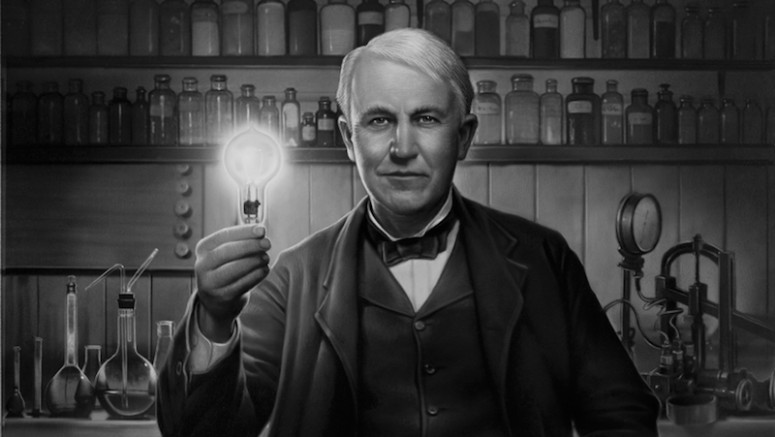
courtesy image
I recently finished Highbrow’s excellent 10-day course on inventions that changed the world.
In keeping score, half of the cited inventions quickened the sharing of information (writing, printing press, telephone, personal computer, internet). A third hastened our transportation (steam engine, automobile, airplanes). One marginalizes or maximizes physical dominance, depending on who owns more of it (gunpowder). And the last one lengthens our days (light bulb).
Interestingly, every one of these inventions involve some element of speed. The speed of a bullet. The speed of light. The speed of travel. The speed of knowledge. That’s why the world moves at an increasing rate. Our greatest inventions all involve speed.
Even this century’s greatest inventions largely involve speed. How fast you can get new or old music to your ears (iTunes, Spotify). How fast you can get answers to questions (Google). How fast you can connect with friends and family (Facebook, SMS). And how fast you can see the latest cat videos (YouTube).
Of course, many of these inventions involve size, frequency, and power. But when it comes to bigger, stronger, better, and faster—always bet on faster. It’s the future. And it’s likely what the “next big thing” will do more than others.
I hope the below will help you travel somewhere fun.
[youtube]https://www.youtube.com/watch?v=CEVdca9U9LM[/youtube]
Over the last decade, I’ve mostly written about technology. Among the hundreds of magazine articles and thousands of blog posts published, some cover entertainment. Some science. Some travel. And rarer still, some sports. (All topics that personally appeal to me.)
Of the latter category, these are the stories I’m most proud of, along with the backstories that created them. Continue reading…
 Because he wrote this masterpiece, I consider Bill Bryson one of the greatest non-fiction writers of our time. And while his similar At Home: A Short History of Private Life is brimming with domestic insights, it’s not as powerful or focused as the former. Three stars out of five. I’d only recommend it to die-hard home owners. My favorite passages:
Because he wrote this masterpiece, I consider Bill Bryson one of the greatest non-fiction writers of our time. And while his similar At Home: A Short History of Private Life is brimming with domestic insights, it’s not as powerful or focused as the former. Three stars out of five. I’d only recommend it to die-hard home owners. My favorite passages:
- That’s really what history mostly is: masses of people doing ordinary things… eating, sleeping, having sex, or endeavoring to be amused.
- So sedentism meant poorer diets, more illness, lots of toothache and gum disease, and earlier deaths. What is truly extraordinary is that these are all still factors in our lives today.
- The dining table was a plain board called by that name. It was hung on the wall when not in use, and was perched on the diners’ knees when food was served. Over time, the word board came to signify not just the dining surface but the meal itself, which is where the board comes from in room and board.
- It has been estimated that 60 percent of all the crops grown in the world today originated in the Americas. These foods weren’t just incorporated into foreign cuisines. They effectively became the foreign cuisines. Imagine Italian food without tomatoes, Greek food without eggplant, Thai and Indonesian foods without peanut sauce, curries without chilies, hamburgers without French fries or ketchup, African food without cassava. There was scarcely a dinner table in the world in any land east or west that wasn’t drastically improved by American foods.
- Had Thomas Jefferson and George Washington merely been plantation owners who built interesting houses, that would have been accomplishment enough, but in fact of course between them they also instituted a political revolution, conducted a long war, created and tirelessly served a new nation, and spent years away from home. Despite these distractions, and without proper training or materials, they managed to build two of the most satisfying houses ever built.
Continue reading…

wikimedia commons
In response to “What are some examples of intelligence disguised as stupidity?” Graham Zaretsky offered the following on Quora:
When I was a freshman in college, one of my fellow freshmen, a young girl who obviously had skipped a bunch of grades would occasionally come to my dorm room in the evenings to ask for help on the homework we both were taking. I was happy to help her out.
After this had happened a few times, she came and asked me about a problem that I, myself was still struggling with. I was stuck on it, and I told her that. She then proceeded to explain to me in great detail how to solve it.
It turned out that what she was doing was going to multiple people (not just me) to see all the different methods that people were using to solve the same problem. She knew how to answer all the questions that I thought she was having trouble with. She just wanted to see if there were other ways to solve those problems, or to see how well she was doing as compared with everyone else. In the end, she far surpassed me in those classes in every way.
Give a man a fish, and you feed him for a day. Teach a man to fish, and you feed him for a lifetime.
There must be something in the water in Montana. It changed my life. It set the stage for this tragic love story. And it recently humbled one individual who was previously indifferent to nature. Continue reading…

Courtesy Miramax
Smart people don’t make better decisions because they’re smart. They make better decisions, research shows, because they habitually do the following:
1. Remove unimportant decisions. If a decision doesn’t have an impact on your work, relationships, or spirit, then remove it from consideration. For example, many CEOs, heads of states, or creative people wear the same thing every day. Steve Jobs wore blue jeans and a black turtleneck everyday. Mark Zuckerberg only wears blue jeans and a gray t-shirt. Similarly, the leader of the free world only wears blue or gray suits, “Because I have too many other decisions to make,” the president recently told Vanity Fair. “I’m trying to pare down decisions,” he added. “I don’t want to make decisions about what I’m eating or wearing.”
For those of us without a personal chef, deciding what kinds of food to eat is a very important decision. But removing or outsourcing unimportant decisions to other people helps us make more meaningful decisions. One of the ways I achieve this is by removing TV from my life, limiting the number of sportsball games I watch, and restricting the number of news sources I read to only three per day. Doing so introduces more social encounters, analog experiences, and thought-provoking literature into my life, which make me a better writer (instead of regurgitator). Continue reading…
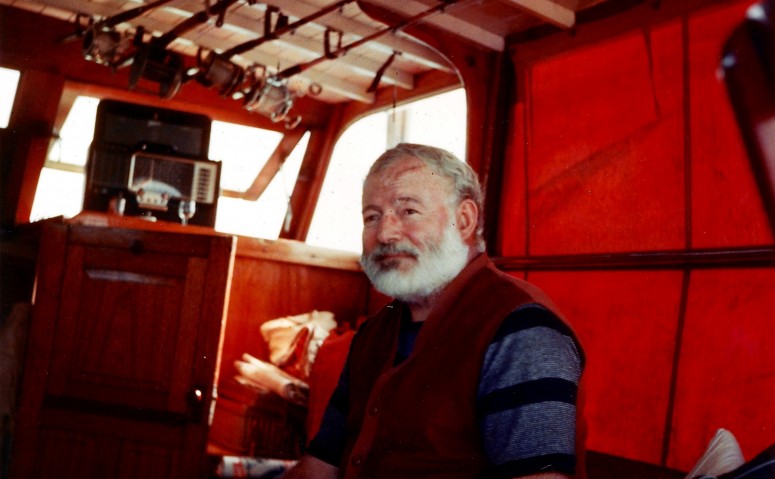
Hemingway aboard his boat off the coast of Cuba (1950)
As compiled by Highbrow:
- “The best way to find out if you can trust somebody is to trust them.”
- “The world breaks everyone, and afterward, some are strong at the broken places.”
- “I like to listen. I have learned a great deal from listening carefully. Most people never listen.”
- “Happiness in intelligent people is the rarest thing I know.”
- “I drink to make other people more interesting.”
- “As a writer, you should not judge, you should understand.”
See also: My review of Old Man and The Sea
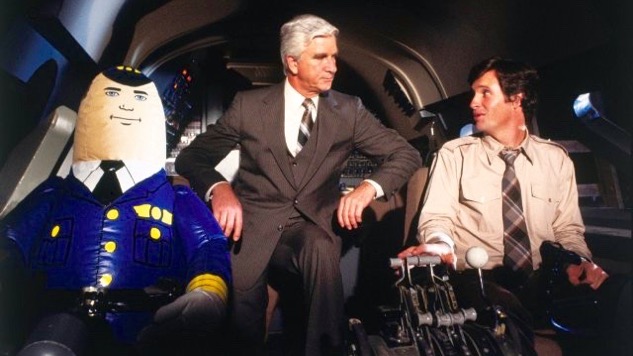
Paramount Pictures

courtesy photos
If you prefer heavy, protective, and stiff hiking shoes, this story isn’t for you. Go ahead and Google “Keen Liberty Ridge.” They are the mother of all high-performance hiking boots. Seasoned guides swear by ‘em.
If, on the other hand, you’re looking for something lighter, more flexible, and less clunky, you’ve come to the right place. Having tested more than a dozen candidates, these are the best I could find: 5 alternative—if not low-profile—hiking shoes that rock.
Before listing the winners, remember: you can wear whatever you like while hiking. Said footwear doesn’t have to be gray or brown or chunky or even necessarily labeled for “hiking,” so long as you find them comfortable. Enough preaching. Onto the list. Continue reading…
As I’ve said before, Heather Smith’s art is creative, meticulous, and “non-machine,” something I believe an increasing number of people will value in an overly processed digital world.
She just opened a store of hand-drawn greeting cards, wrapping paper, silhouettes, and canvas tote bags. I hope consider, dig, and buy them as much as I do.
Disclosure: Heather is my sister-in-law, but nepotism this talented must be rewarded.

Credit: Columbia Pictures
I’ve successfully completed two rounds of therapy. I say “successfully” because the first (marriage counseling) saved my marriage after a checkered first year. The second (anger management) helped me harness my emotions.
Like Wreck-It-Ralph, my passion bubbles very near the surface. I’ve known this since adolescence. But I didn’t know how to manage it until group therapy. This is that story.
Continue reading…
Here’s where my travel column went last month:

credit: blake snow
I was late for safety inspection.
In a blur, I rushed to the garage, hopped on my moped, and scooted out of suburbia. While doing 35 miles per hour over train tracks, I elevate my hiney to let my knees absorb the shock. Doing otherwise aggravates my bad back.
I exit right at the roundabout. Left at the bridge. Right on 500 West. Then left again to my first of three stops. “Just the safety test?” a greasy face asks me. “Yes,” I reply. After satisfying all of his procedural requests, I’m cleared for registration. Continue reading…

credit: wikimedia commons
I like Jay Bazzinotti’s answer to this question—so much that I’m re-publishing his observations in full. He writes:
- Time passes much more quickly than you realize.
- If you don’t take care of your body early then it won’t take care of you later. Your world becomes smaller each day as you lose mobility, continence, and sight.
- Sex and beauty fades but intimacy and friendship grows.
- People are far more important than any other thing in your life. No hobby, interest, book, work is going to be as important to you as the people you spend time with as you get older.
- Money talks. It says “Goodbye”. If you didn’t plan financially for your old age when you are young you will wish you had.
- Any seeds you planted in the past, either good or bad, will begin to bear fruit and affect the quality of your life as you get older, for better or worse.
- Jealousy is a wasted emotion. People you hate are going to succeed; people you like are going to sometimes do better than you did. Kids are going to be smarter and quicker than you are. Accept it with grace.
- That big house you had to have becomes a bigger and bigger burden even as the mortgage gets smaller. The cleaning, the maintenance, the stairs, all of it… becomes less attractive every day. Your possessions own YOU.
- You will badly regret the things you DIDN’T do far more than the things you did that were “wrong” — the girl you didn’t kiss; the trip you didn’t take; the project you kept putting off; the time you could have helped someone. If you get the chance – do it. You may never get the chance again.
- Every day you wake up is a victory.
 I’m fortunate to have found my calling in life. I don’t dread Mondays. Returning to my desk after lunch isn’t a chore. I welcome the challenge of pleasing several bosses (aka “clients”).
I’m fortunate to have found my calling in life. I don’t dread Mondays. Returning to my desk after lunch isn’t a chore. I welcome the challenge of pleasing several bosses (aka “clients”).
But I’m still human. I look forward to weekends. I fake “sick days” and play hooky. And I daydream of dorking around, even when working with people I like on projects I’m passionate about.
I was reminded of this last Wednesday while on assignment for Google, writing a fun but challenging story for them. Once late afternoon hit, however, all I wanted to do was paddleboard or cut home movies. Continue reading…
[youtube]https://youtu.be/XzKOwe6dYQI[/youtube]
Nine years ago, I stumbled upon an obscure YouTube video with only a few hundred views. Although I can no longer locate the video, the image it contained has haunted me ever since. A granite-green fjord flanked by towering cliffs, an enticing inlet, and an open invitation to hike it. I added the place to my bucket list and waited for the right opportunity to visit.
Three weeks ago, it finally happened. While on assignment for work (someone’s gotta do it!) and with my brother-in-law begrudgingly assisting, I hiked Western Brook Fjord in Newfoundland. Spoiler alert: It was everything I expected it to be. More beautiful than the already stunning photos of it.
I still don’t fully understand why word hasn’t gotten out; why more people haven’t visited it.
Well I hope to change that, starting with the above video and some feature stories to follow on not just the awesome hike, but the friendly locals, unexpectedly good food, and other exceptional adventures the island affords.
Make no mistake: I went for the fjord but left with a love for an entire province. I’ll be back.

Last week while eating lunch with my family, my playful wife invented a new game called “Clap for [insert person’s name here].” It works like this. You prompt everyone to applaud someone for several moments. Then watch their face, eyes, and smile light it while you do it.
Even though the act is forced, the game works every time. At least it does on my family, my wife and I very much included.
The only way I can explain why it works is that recognition matters. Just hearing your name, being complimented, or even just having your presence recognized as the above game so deftly accomplishes is enough to make people feel elated and special. When that happens, we want to become better people. That’s powerful.
As silly as it sounds, I invite all reading this to play this game and report your findings. Like Dale Carnegie taught, praise people, even the slightest. Recognize their contributions.
But more importantly, acknowledge people by remembering their name, take a genuine interest in what interests them, and applaud them for being who they are.
It’s magic, I tell ya.

credit: blake snow
Perhaps one of the below might inspire your next offline adventure:
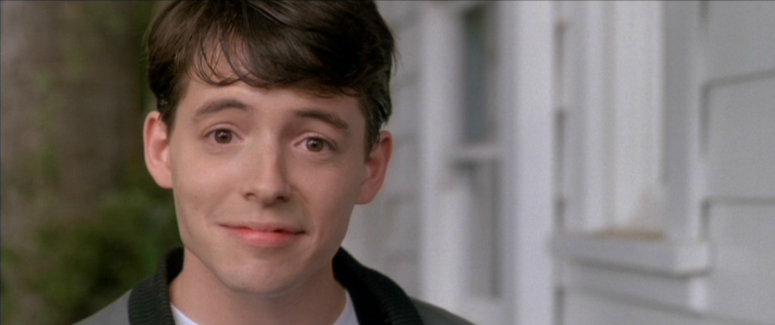
Paramount Pictures
I recently read Dale Carnegie’s popular How to Win Friends and Influence People. Here’s what I learned:
- Trying to understand people is more effective than criticism. Not only does it bring clarity, it breeds tolerance and kindness, which engenders people. So before criticizing someone’s effort or creation, ask them why they did what they did. See things from others’ viewpoints. As a born critic, this is difficult for me to do. But I’ve already seen how effective this is after using it on those closest to me.
- Smile when greeting and talking to people. This is a simple and powerful act. “The expression one wears on one’s face is far more important than the clothes one wears on one’s back,” Carnegie writes, this coming from someone who notes the power of dressing nice. And from someone who says “one” quite a lot. Continue reading…

My wife taught me a valuable lesson recently.
For years, we’ve been planning to build a new house for our growing family. With that decision, we pegged a lot of other things to it, such as a new living room, new places to see, and even a family dog.
“Let’s update the living room after we move,” we told ourselves. “Let’s hold off on that vacation until we’re settled. Let’s wait for a dog until we have our own yard.”
We’ve held that belief for many years with various plans, not just shelter. Wait, wait, wait. When.. when… when… After, after, after. Continue reading…

SNL
I recently sampled a book in which the author said such-and-such was the “second most enchanting thing” he’d ever seen, save only seeing his wife for the first time. The line made me reflect upon the first time I met my wife:
In a hot tub. Continue reading…
After 36 years of excruciating mystery, humanity finally knows how many people prematurely bite into Tootsie Pops, and how many licks it takes to reach the center. New research conducted by yours truly and NYU has the answers. Continue reading…
 I posses five and a half of the seven denominators of American millionaires, according to The Millionaire Next Door. Assuming each of these traits are weighted equally, I have a 79% chance (78.5% to be exact) of becoming one.
I posses five and a half of the seven denominators of American millionaires, according to The Millionaire Next Door. Assuming each of these traits are weighted equally, I have a 79% chance (78.5% to be exact) of becoming one.
While the extra play money would be fun, I’m content with my thousandaire status. I have my health. I’ve got my soulmate. I found my calling.
I have five fabulous children, many uplifting friends, and a loyal dog. When kids ask me if I’m “rich,” I say yes, because I am.
Enough of the feel-good crap. A millionaire I am not. Let’s get down to numbers: Continue reading…
[youtube]https://youtu.be/JVARQXoUmNQ[/youtube]
From the “we live in incredible times” file comes… “When I was your age, we rode jetpacks at the lake!”
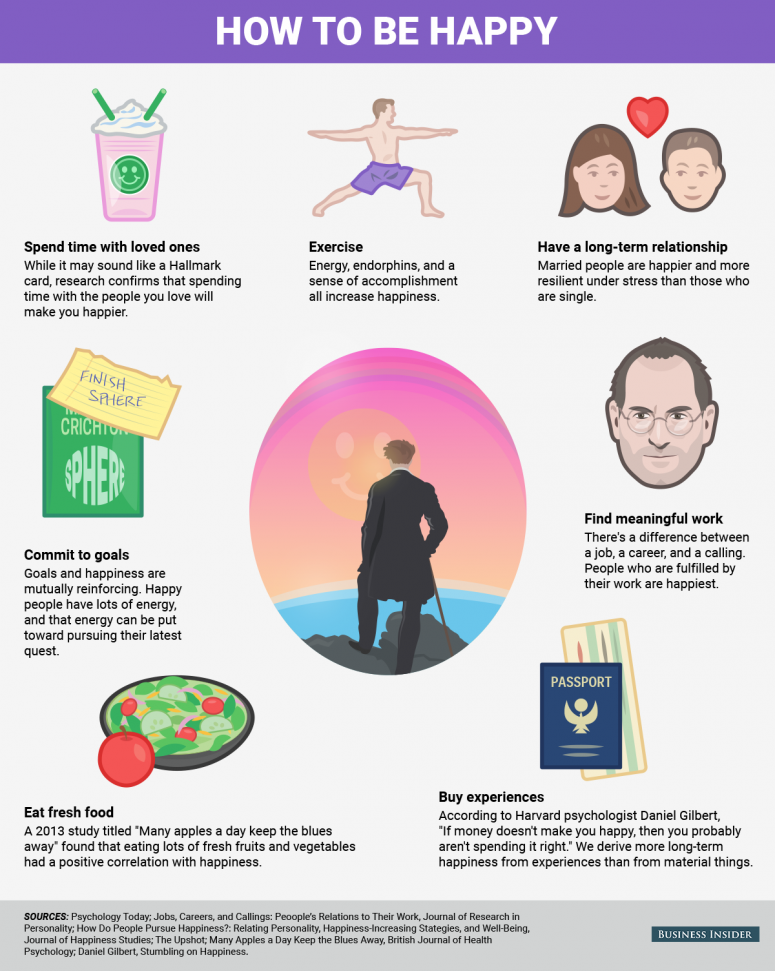
Good summation of advice that certainly mirrors my independent research. #bookmark
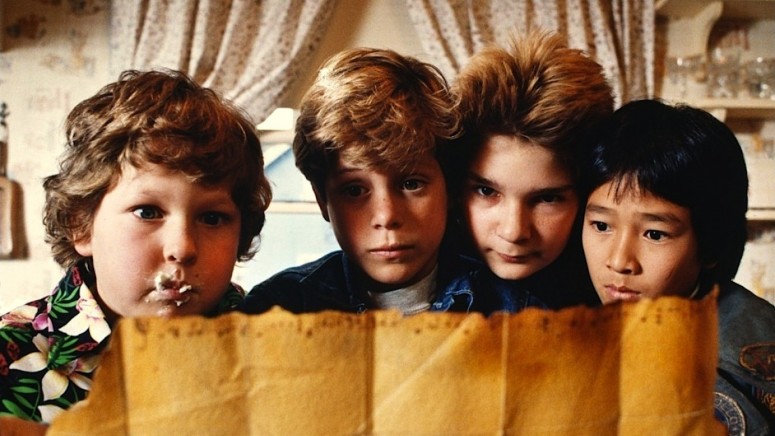
Courtesy Warner Bros.
My travel column entries from last month:
Feedback if you got ’em.

Credit: Business Week
I recently read Paul Ford’s special report on software—all 36,000 words and three hours of it. If you work in computers, you should read it. If you work in business, you should read it. If you’re an adult human, you will learn a lot about the way things are and where they’re headed by reading it.
Admittedly, the story could have benefitted from some additional editing. Ford, after all, veers a little off topic. But like Bill Bryson, Ford is a master at explaining why things matter—in this case, why coders matter, and how they will increasingly influence the future.
If that’s doesn’t convince you to read the article’s entirety, maybe my 10 favorite excerpts will: Continue reading…
 I’m grateful to my parents for teaching me basic personal hygiene. Things like regular bathing, brushing teeth, grooming, laundry, and hand-washing.
I’m grateful to my parents for teaching me basic personal hygiene. Things like regular bathing, brushing teeth, grooming, laundry, and hand-washing.
But in recent years, I’ve picked up new habits that have improved my life. My parents probably tried to teach me some of them. Others I discovered on my own or with the help of my wife.
Whatever the catalyst, all of the below have greatly improved my life:
- Relentless sun-screening. Several summers ago, I had an epiphany. I don’t think I’ve ever heard someone say, “I wish I hadn’t used so much sun screen.” Upon realizing this, I challenged myself to not get burned that summer, despite getting burned every prior summer through negligence (I’m a pasty caucasian). To beat the sun’s harmful rays, I applied sunscreen whenever I knew I would be exposed to direct sunlight for longer than 30-60 minutes. When swimming, for example, I reapplied often, several times an afternoon. Three months later, I conquered without getting burned once. And to my vain surprise, I was tanner than I’d ever been. Since that successful experiment, I haven’t been burned again, at least my skin hasn’t turned lobster, itched, or peeled. So remember: sunscreen only filters the sun’s harmful rays. It doesn’t block the good stuff like vitamin D and sun kissed skin. Continue reading…
It was my brother’s birthday yesterday. Rather than offer a lot of obligatory “Happy birthdays,” my siblings and I did this: Continue reading…
 Although English is the third most spoken language after Mandarin and Spanish, it is the most spoken second language in the world. This is due to the power-brokers that speak it, its uniquely expressive vocabulary, and how it came to be, argues Bill Bryson in The Mother Tongue.
Although English is the third most spoken language after Mandarin and Spanish, it is the most spoken second language in the world. This is due to the power-brokers that speak it, its uniquely expressive vocabulary, and how it came to be, argues Bill Bryson in The Mother Tongue.









 I only read six books this year. Eight if you count the 50 page summaries I read of
I only read six books this year. Eight if you count the 50 page summaries I read of 









 Because he wrote
Because he wrote 










 I’m fortunate to have
I’m fortunate to have 





 I posses five and a half of the seven denominators of American millionaires, according to
I posses five and a half of the seven denominators of American millionaires, according to 


 I’m grateful to my parents for teaching me basic personal hygiene. Things like regular bathing, brushing teeth, grooming, laundry, and hand-washing.
I’m grateful to my parents for teaching me basic personal hygiene. Things like regular bathing, brushing teeth, grooming, laundry, and hand-washing.